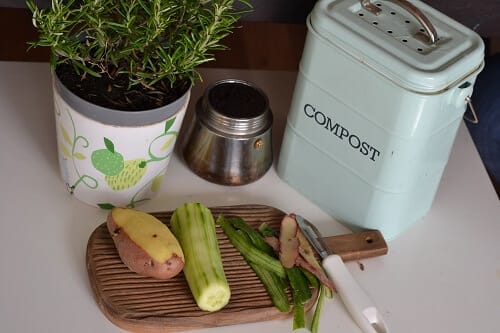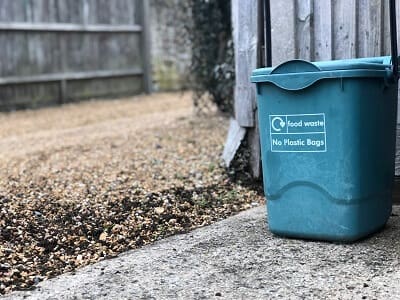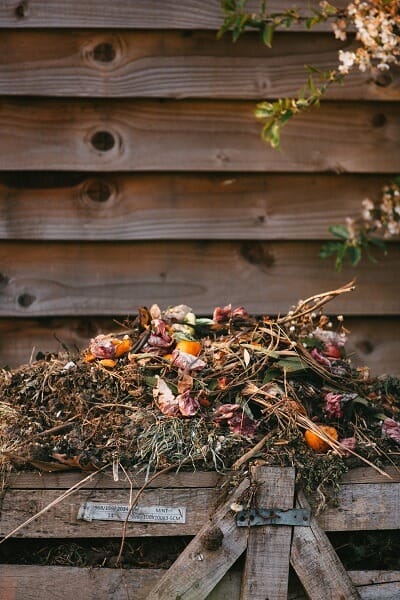
Countertop composters are a convenient and sustainable way to manage food waste in the kitchen. As more and more people become aware of the environmental impact of food waste, the popularity of countertop composters has been on the rise. These small, compact devices offer a convenient and eco-friendly way to reduce the amount of waste sent to landfills, while also providing a valuable source of nutrients for plants and gardens. These small composting units can be placed on the counter or kitchen sink, making it easy to compost food waste in a small space.
Benefits of Composting
Composting is the process of breaking down organic material, such as food waste, into a rich, nutrient-rich soil amendment known as compost. Composting is a natural process that can be done at home and has numerous environmental benefits.
One of the key benefits of composting is that it reduces the amount of waste that ends up in landfills. Food waste is a significant contributor to landfills, accounting for around 21% of the total waste generated in the United States. When food waste is sent to a landfill, it breaks down without oxygen, releasing methane, a potent greenhouse gas. Composting food waste instead of sending it to a landfill can reduce our carbon footprint and help combat climate change.
Composting also helps to conserve resources. When food waste is sent to a landfill, it takes up valuable space and resources that could be used for other purposes. By composting food waste, we can reduce the demand for landfills and conserve valuable resources.
Another benefit of composting is that it helps to improve soil health. Compost is a natural fertilizer that can improve soil structure, promote plant growth, and improve water retention. By using compost in your garden or landscape, you can reduce the need for synthetic fertilizers and improve the health of your soil.

Why Use a Countertop Composter?
Countertop composters come in various styles and sizes, but they all share the same basic function: to break down organic materials such as food scraps and yard waste into compost. Most countertop composters are typically small and compact, making them easy to store on the counter or kitchen sink. They are also easy to use, with most units featuring a simple lid or door for adding food waste, and a removable bin for collecting compost.
Countertop composters are also an eco-friendly alternative to traditional composting methods. Many traditional composting methods can attract pests and generate unpleasant odors. Unlike traditional composting methods, which often require a separate compost bin or pile in the backyard, countertop composters can be easily placed on a kitchen counter or under the sink. Countertop composters, on the other hand, are sealed and contained, making them less likely to attract pests or produce odors.
How to Use a Countertop Composter
Countertop composters come in a variety of styles and sizes, but they all share the same basic function: to break down organic materials such as food scraps and yard waste into compost. The process of composting involves the action of microorganisms, such as bacteria and fungi, which break down the organic materials into a nutrient-rich soil amendment.
To use a countertop composter, simply add food waste to the unit as it is generated. Most units have a removable bin or bucket for collecting compost, which can be emptied into an outdoor compost pile or bin for further decomposition. Some units also have a built-in filter to reduce odors, and some models can be used with compostable bags for even easier disposal.
Overall, countertop composters are a convenient and sustainable way to manage food waste in the kitchen. Composting food waste instead of sending it to a landfill can reduce our carbon footprint, conserve resources, and improve soil health. Whether you are a novice composter or an experienced gardener, a countertop composter is a valuable addition to any home.
What are the Advantages of a Countertop Composter?
One of the main advantages of countertop composters is their convenience. This makes it easy to collect food waste throughout the day and compost it on the spot, without having to worry about odors or attracting pests.

Another advantage of countertop composters is their small size. Many models are designed to hold only a few quarts of waste at a time, making them perfect for households with limited space or a small number of compostable materials. This also makes them ideal for apartment dwellers or anyone living in an urban area where traditional composting may not be practical.
In addition to their convenience and small size, countertop composters also offer a number of other benefits. For one, they can help reduce the amount of waste sent to landfills. In the United States, food waste accounts for a significant portion of the waste stream, with approximately 30% of the food we produce going to waste. By composting food scraps instead of throwing them away, we can help reduce the amount of waste that ends up in landfills.
Another benefit of countertop composters is the nutrient-rich compost they produce. This compost can be used in a variety of ways, including as a soil amendment for gardens and plants, or as a fertilizer for lawns and other outdoor spaces. In addition, compost can help improve the soil structure and increase water retention, making it an important tool for sustainable gardening and landscaping.
What are the Disadvantages of Countertop Composters?
While countertop composters offer many benefits, there are also some potential drawbacks to consider. One concern is the potential for odors or pests. While many countertop composters are designed with these issues in mind, it is still important to regularly empty and clean the compost bin to prevent any unpleasant smells or unwanted visitors.
Another potential issue is the cost of countertop composters. While they are generally less expensive than traditional composting methods, they can still be a significant investment for some households. However, the long-term benefits of composting, including reduced waste and improved soil health, may outweigh the initial cost.
Final Word on Countertop Composting
Overall, countertop composters offer a convenient and eco-friendly way to reduce food waste and produce nutrient-rich compost. While there are some potential drawbacks to consider, the benefits of composting make it a valuable tool for anyone looking to reduce their environmental impact and improve their home garden.